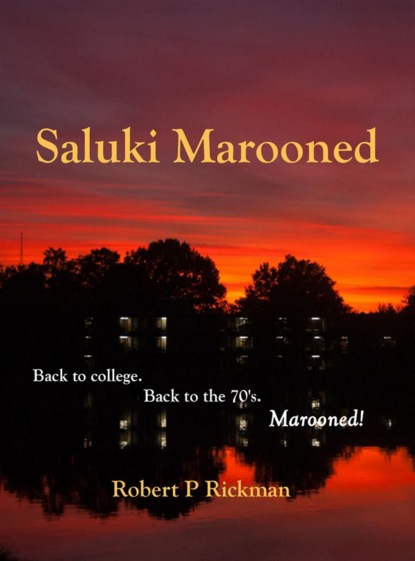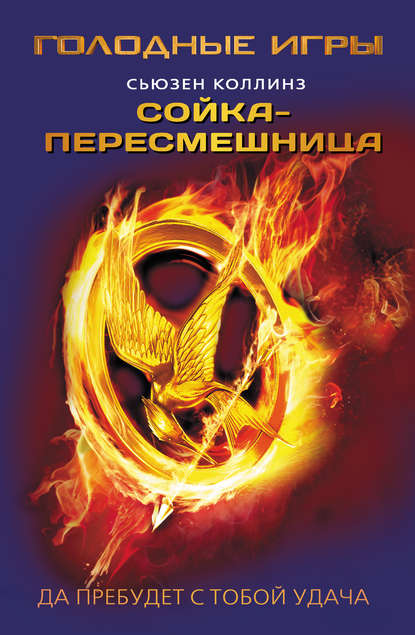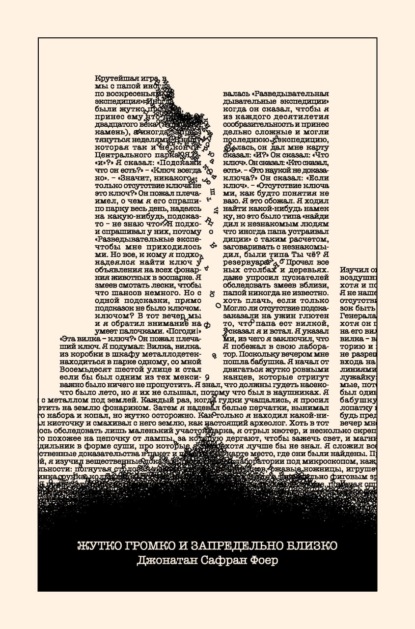
Текст
отзывы: 0 | рейтинг: 0
Saluki Marooned
Robert Rickman
“Saluki Marooned”
Robert P Rickman
Edited by Nathan Beck
Copyright 2012 Robert P Rickman
Second Edition Published by Tek Time
All rights reserved
ACKNOWLEDGMENTS
I spent nearly 8 years staring at a computer screen, with my mind in the 1970s, as I wrote this novel. Though it was a solitary job, I wasn’t alone because I had Nathan Beck, ‘07, as a consultant. Nathan, who received his MFA from SIU, took a broadcast writer and taught him how to write fiction. Sandra Barnhart of the Carbondale Public Library played an essential role in the formatting of the manuscript for publication. Mary Mechler, MBA ‘93, of the SIU Small Business Development Center helped me to develop a marketing plan for Saluki Marooned and also tutored me on everything from website development to business cards. The cover photograph of the Campus Lake at dusk was shot by Taylor Reed, BA ‘09. Bob Kerner of La Vergne, Tennessee, took the picture for the back cover. Though Bob is not an SIU alum, he did wear a maroon t-shirt for the occasion. The SIU Alumni Association has helped with marketing the book to alumni all over the world. Finally, special thanks to SIU Radio and TV graduates Bob Smith, ‘73, and Roger Davis, ‘72, who assisted with the marketing and proofreading of this novel.
Forward
Two wild rivers splashed together in Mid 20th Century America—the peace movement, and youth. It was one big freak out, with kids grooving to the gnarly music, mod threads, kickin' stash, swingin' chicks, and violence. UC Berkley led the way with campus unrest.
2000 miles to the east stood the Berkley of the Midwest—Southern Illinois University at Carbondale. In 1969, an arsonist torched Old Main, its oldest building. When the National Guard killed four students at Kent State, Ohio in the spring of 1970, riots closed SIU and its president resigned.
Adding to the edginess was an extensive rap sheet for the southernmost thirteen counties of Illinois. The most violent earthquake in the contiguous 48 states shattered the region during the early 1800’s. In 1922, 23 coal miners were killed during the Herrin Massacre. The Great Tri-State tornado, deadliest in American history, struck in 1925 killing 695 people. Below ground, the New Orient Mine explosion took the lives of 119 miners in 1951. And in more recent times, the May 2009 inland hurricane spawned three tornadoes in Southern Illinois, which uprooted trees, blew out windows and demolished buildings.
That Fall 58-year-old Peter Federson wandered onto SIU after binging on drugs and alcohol. Deeply depressed, the former Saluki crawled under a canoe on the lake, fell into a stupor and joined the region's long list of extraordinary statistics. Because, when Pete awoke in 1971, the world was out of kilter, just as he had remembered it.
Chapter 1
There is something wrong with my emotional thermostat; good things make me nervous, bad things make me even more nervous, and uncertainty drives me wild. Yet I loathe boredom and routine. It’s been that way for my entire 58-year life.
Gleefully twisting the dial of my thermostat is a squadron of gremlins, living deep in my mind, which pry out bad memories, distort them into parodies of themselves, grossly amplify them, and propel them rudely into my consciousness. The gremlins use my memories to bludgeon my tender nerves until I writhe in agony.
There is a line of these chemicals—because that’s what they are, disarranged brain chemicals—that begins in the late 1960’s and stretches to the present. This long and jagged line represents a demonic resume of my work history. I have been employed as a security guard, proofreader, adult school instructor, janitor, server, ticket taker, carpenter, bar disc jockey, radio disc jockey, photographer, and grocery store bagger. After I flunked out of college, I was a private in the United States Army. That was the worst job.
The best job was working as a news reporter and anchorman at radio stations in Iowa and California. Being on the air is my number one talent; the thing that I am tailor made for, except that I couldn’t tolerate stress for very long. I could bottle it up for a while, maybe for months, and occasionally years, but eventually the cork would pop off with a bang, releasing the fulminating gremlins. Then I would either walk out on the job, get fired, or a sometimes combine the two so that both former employee and former employer were confused as to what exactly happened. I was fired from my last job in radio in 1999 when I got into an argument with the news director about how to pronounce “Des Plaines,” the name of a Chicago suburb. Since I’m from Chicago I told him the right pronunciation was Dess-Planes. Yet he went on the air with the some strange French pronunciation, and I called him a frog. I didn’t know he was of French descent.
My latest gig ended in the usual spectacular way on a bright fall day in 2009 at a company called Testing Unlimited, located down the street from where I lived in Fox Lake, Illinois, another suburb of Chicago. The job was classified as part time/occasional, which meant that I couldn’t claim unemployment insurance, had no benefits, and worked only six to eight months out of the year. Some weeks I didn’t know what days I would work, or how many hours per day. I was comfortable with that, because the job offered me absolutely no security, and though the lack of security was bad, the idea of a change to something better was even worse.
With a big smile, the manager called our work the intellectual equivalent of ditch-digging. A group of a hundred of us—all with some college under our belts—sat on folding chairs, two chairs to a table, with a computer monitor, a keyboard, and a mouse in front of us. Our job was to score elementary school tests. Sometimes there would be paragraphs about a kid’s favorite pet; other times we’d score entire essays about what a the child did on his summer vacation.
The last ditch I dug for the company involved how to spell the word “cat”. Our instructions at the beginning of the project were simple: “cat” spelled correctly was worth two points, and if the spelling was close, like k-a-t, c-u-t, or c-o-t, we scored one point. Everything else earned a 0. But the parents of one child challenged the scoring with the logic that an r-a-t could be chased by a c-a-t, and a rat was also a four-legged animal with a tail, and should therefore be given one point because a rat was close in spelling and general appearance to a cat—if it was a big rat and a person squinted. The state board of education sided with the parent, and from that, the rubric morphed from two simple sentences to five pages of convoluted instructions. We had to complete 6 papers per minute, 360 papers per hour, 2700 per eight-hour day, with two fifteen-minute breaks and a half-hour lunch. The computer kept tabs on us with ruthless accuracy.
After a month of c-a-t, r-a-t, b-a-t, s-a-p and “friend” (1 point), my brain started to wander, which led to a drop in accuracy and speed, and a whole lot of fear. So I decided to set production goals and keep track of my progress by making a tick mark on a sticky note every time I scored a paper.
One afternoon in the fall of 2009, I had my thick glasses slid down on my nose so that I could see closely, and was counting tick mark number 552 when suddenly Jim, the head ditch digger, shattered my concentration.
“Ahhh Peter,” he said, speaking in his soft monotone.
The pencil flew out of my hand. “What?”
“Take a look at this paper…” He leaned over me, tapped a few letters on my keyboard, and clicked the mouse. A paper came up on the screen.
“…it should be a one,” he said.
I scowled at him. “It looks like c-a-t to me.”
“Well, if you look closely at the last letter, what appears to be the crossing of the ‘t’ is only a stray mark.”
“It still looks like a ‘t’ to me.” I looked at him hard.
“I showed it to Becky, and she agrees with me that the last letter is not a ‘t’, so we need to change the score to a one.”
“We do, huh? Well, how long did you and Becky spend studying this letter?”
Jim looked uncomfortable.
“About ten minutes, then we took it to Bill—you know Bill, the project captain—and he examined it with the Challenger Program. You know, the special program that uses fuzzy logic to analyze a child’s writing. Anyway, Bill agreed with us that it should be a one.” Jim was staring at me now.
I turned to him and asked, “Well, then, who the hell is scoring this paper, you, Becky, Bill, or me?”
“Why you are, of course.” Jim looked frightened.
“Fine, then it’s a two.”
“Mr. Federson, I think we need to talk with Bill.” Suddenly, mellow Jim wasn’t so mellow anymore.
It’s hard to understand how a person with a PhD, two people with Master’s degrees in English, and a guy with two years of college (me) could get into a shouting match over how to spell c-a-t, but we did, and that’s how I lost my job with the testing company. As usual, it was irrelevant whether I walked out on the job or was kicked out of it. As a parting shot, “Project Captain” Bill suggested I seek professional help.
Yah, like I’ve never heard that before.
I threw my ID badge on the receptionist’s desk, stalked out into the parking lot with stern resolve and…couldn’t get the door open to my 1976 Dodge Charger. After hammering it with my fist a couple of times, the door opened with a rusty screech, and soon I was roaring out of the parking lot in a cloud of blue smoke.
I drove around aimlessly, burning precious gas while I burned off my anxiety. The Charger was a broken-down mess; I never washed or waxed it, never changed the oil—never even looked at the dipstick—and never fixed the huge dent on the left rear panel. The dash was cracked to pieces. The radio and air conditioner hadn’t worked for years. Fast food wrappers, grocery receipts, and brittle envelopes of old mail covered the floor. And in the back seat rose a pile of dirty laundry that had been accumulating for weeks. I glanced at the pile through the cock-eyed rearview mirror, then looked down at what I was wearing: a dirty pinstriped business shirt with an unbuttoned collar and mismatched socks. As much as I hated the routine, it was time to do the laundry.
Soon, I was parked at the local laundromat and, as usual on laundry day, my temper was rising because I was reliving a memory of someone taking my wet clothes out of the dryer, throwing them in a heap on the floor, and putting his clothes in their place. This gremlin-enhanced memory came from an incident in the dorm laundry room while I was attending Southern Illinois University in 1971. As usual, the gremlins tormented me as I watched my tattered 2009 clothing spin around in the dryer. When the dryer stopped, I reached in to test the clothes.
Still wet! Shit!
As I was reaching into my pocket for two more precious quarters, my fingers touched the sticky leather case of my cell phone. I hadn’t talked with Ronald Stackhouse for a while. He had helped me organize my thinking when I worked for WSIU, the radio station at Southern, so that when the record ended I wasn’t sitting there with nothing to say. In 1999, he helped me to find another job when I got blown out the door of WREE, the all-news station, and helped me get back on my pivot when I was axed from the security, proofreading, and janitorial jobs. He always handled me with great tact, as if not being able to hold a job, though troubling, was just a glitch in the grand format of life. Ronald was stability personified, so the gremlins were afraid of him.
I punched the speed dial, but nothing happened because the battery was dead again; it had virtually no charging capacity left. I stuffed the phone back into my pocket quickly, before I surrendered to the impulse of throwing it against the dryer.
An hour later I threw the clean laundry into the back of my car, a place it would stay for another few weeks, for it was destined to make its way back into my house piece by piece, as I needed it. Change was stressful to me, even small changes. And, as of the fall of 2009, I was making fewer and fewer changes in my life because I didn’t want to risk losing what little I had.
I stumbled over the cell phone adapter on the back seat, plugged it into the cigarette lighter, and called Ronald. Before he could even say “Hello” I barked,
“Goddamn it, Ron, this has been one hell of a goddamn day!”
“Who? What? Oh, it’s you, Pete.”
“Damned right it is! I’m at the laundry, and do you remember that son-of-a-bitch who yanked my wet clothes out of the dryer and threw them on the floor when we were in college?”
“He did it again?”
“Oh, funny, Ronald! Do you remember?”
“Pete, that was almost forty years ago.”
“Well, it seems like yesterday because I got pissed off all over again while I was watching my laundry in the dryer a few minutes ago.”
“And?”
“Nothing else, just that.”
“Pete, have you been drinking a lot of coffee again?”
“Not yet. That’s the next stop.”
Robert Rickman
“Saluki Marooned”
Robert P Rickman
Edited by Nathan Beck
Copyright 2012 Robert P Rickman
Second Edition Published by Tek Time
All rights reserved
ACKNOWLEDGMENTS
I spent nearly 8 years staring at a computer screen, with my mind in the 1970s, as I wrote this novel. Though it was a solitary job, I wasn’t alone because I had Nathan Beck, ‘07, as a consultant. Nathan, who received his MFA from SIU, took a broadcast writer and taught him how to write fiction. Sandra Barnhart of the Carbondale Public Library played an essential role in the formatting of the manuscript for publication. Mary Mechler, MBA ‘93, of the SIU Small Business Development Center helped me to develop a marketing plan for Saluki Marooned and also tutored me on everything from website development to business cards. The cover photograph of the Campus Lake at dusk was shot by Taylor Reed, BA ‘09. Bob Kerner of La Vergne, Tennessee, took the picture for the back cover. Though Bob is not an SIU alum, he did wear a maroon t-shirt for the occasion. The SIU Alumni Association has helped with marketing the book to alumni all over the world. Finally, special thanks to SIU Radio and TV graduates Bob Smith, ‘73, and Roger Davis, ‘72, who assisted with the marketing and proofreading of this novel.
Forward
Two wild rivers splashed together in Mid 20th Century America—the peace movement, and youth. It was one big freak out, with kids grooving to the gnarly music, mod threads, kickin' stash, swingin' chicks, and violence. UC Berkley led the way with campus unrest.
2000 miles to the east stood the Berkley of the Midwest—Southern Illinois University at Carbondale. In 1969, an arsonist torched Old Main, its oldest building. When the National Guard killed four students at Kent State, Ohio in the spring of 1970, riots closed SIU and its president resigned.
Adding to the edginess was an extensive rap sheet for the southernmost thirteen counties of Illinois. The most violent earthquake in the contiguous 48 states shattered the region during the early 1800’s. In 1922, 23 coal miners were killed during the Herrin Massacre. The Great Tri-State tornado, deadliest in American history, struck in 1925 killing 695 people. Below ground, the New Orient Mine explosion took the lives of 119 miners in 1951. And in more recent times, the May 2009 inland hurricane spawned three tornadoes in Southern Illinois, which uprooted trees, blew out windows and demolished buildings.
That Fall 58-year-old Peter Federson wandered onto SIU after binging on drugs and alcohol. Deeply depressed, the former Saluki crawled under a canoe on the lake, fell into a stupor and joined the region's long list of extraordinary statistics. Because, when Pete awoke in 1971, the world was out of kilter, just as he had remembered it.
Chapter 1
There is something wrong with my emotional thermostat; good things make me nervous, bad things make me even more nervous, and uncertainty drives me wild. Yet I loathe boredom and routine. It’s been that way for my entire 58-year life.
Gleefully twisting the dial of my thermostat is a squadron of gremlins, living deep in my mind, which pry out bad memories, distort them into parodies of themselves, grossly amplify them, and propel them rudely into my consciousness. The gremlins use my memories to bludgeon my tender nerves until I writhe in agony.
There is a line of these chemicals—because that’s what they are, disarranged brain chemicals—that begins in the late 1960’s and stretches to the present. This long and jagged line represents a demonic resume of my work history. I have been employed as a security guard, proofreader, adult school instructor, janitor, server, ticket taker, carpenter, bar disc jockey, radio disc jockey, photographer, and grocery store bagger. After I flunked out of college, I was a private in the United States Army. That was the worst job.
The best job was working as a news reporter and anchorman at radio stations in Iowa and California. Being on the air is my number one talent; the thing that I am tailor made for, except that I couldn’t tolerate stress for very long. I could bottle it up for a while, maybe for months, and occasionally years, but eventually the cork would pop off with a bang, releasing the fulminating gremlins. Then I would either walk out on the job, get fired, or a sometimes combine the two so that both former employee and former employer were confused as to what exactly happened. I was fired from my last job in radio in 1999 when I got into an argument with the news director about how to pronounce “Des Plaines,” the name of a Chicago suburb. Since I’m from Chicago I told him the right pronunciation was Dess-Planes. Yet he went on the air with the some strange French pronunciation, and I called him a frog. I didn’t know he was of French descent.
My latest gig ended in the usual spectacular way on a bright fall day in 2009 at a company called Testing Unlimited, located down the street from where I lived in Fox Lake, Illinois, another suburb of Chicago. The job was classified as part time/occasional, which meant that I couldn’t claim unemployment insurance, had no benefits, and worked only six to eight months out of the year. Some weeks I didn’t know what days I would work, or how many hours per day. I was comfortable with that, because the job offered me absolutely no security, and though the lack of security was bad, the idea of a change to something better was even worse.
With a big smile, the manager called our work the intellectual equivalent of ditch-digging. A group of a hundred of us—all with some college under our belts—sat on folding chairs, two chairs to a table, with a computer monitor, a keyboard, and a mouse in front of us. Our job was to score elementary school tests. Sometimes there would be paragraphs about a kid’s favorite pet; other times we’d score entire essays about what a the child did on his summer vacation.
The last ditch I dug for the company involved how to spell the word “cat”. Our instructions at the beginning of the project were simple: “cat” spelled correctly was worth two points, and if the spelling was close, like k-a-t, c-u-t, or c-o-t, we scored one point. Everything else earned a 0. But the parents of one child challenged the scoring with the logic that an r-a-t could be chased by a c-a-t, and a rat was also a four-legged animal with a tail, and should therefore be given one point because a rat was close in spelling and general appearance to a cat—if it was a big rat and a person squinted. The state board of education sided with the parent, and from that, the rubric morphed from two simple sentences to five pages of convoluted instructions. We had to complete 6 papers per minute, 360 papers per hour, 2700 per eight-hour day, with two fifteen-minute breaks and a half-hour lunch. The computer kept tabs on us with ruthless accuracy.
After a month of c-a-t, r-a-t, b-a-t, s-a-p and “friend” (1 point), my brain started to wander, which led to a drop in accuracy and speed, and a whole lot of fear. So I decided to set production goals and keep track of my progress by making a tick mark on a sticky note every time I scored a paper.
One afternoon in the fall of 2009, I had my thick glasses slid down on my nose so that I could see closely, and was counting tick mark number 552 when suddenly Jim, the head ditch digger, shattered my concentration.
“Ahhh Peter,” he said, speaking in his soft monotone.
The pencil flew out of my hand. “What?”
“Take a look at this paper…” He leaned over me, tapped a few letters on my keyboard, and clicked the mouse. A paper came up on the screen.
“…it should be a one,” he said.
I scowled at him. “It looks like c-a-t to me.”
“Well, if you look closely at the last letter, what appears to be the crossing of the ‘t’ is only a stray mark.”
“It still looks like a ‘t’ to me.” I looked at him hard.
“I showed it to Becky, and she agrees with me that the last letter is not a ‘t’, so we need to change the score to a one.”
“We do, huh? Well, how long did you and Becky spend studying this letter?”
Jim looked uncomfortable.
“About ten minutes, then we took it to Bill—you know Bill, the project captain—and he examined it with the Challenger Program. You know, the special program that uses fuzzy logic to analyze a child’s writing. Anyway, Bill agreed with us that it should be a one.” Jim was staring at me now.
I turned to him and asked, “Well, then, who the hell is scoring this paper, you, Becky, Bill, or me?”
“Why you are, of course.” Jim looked frightened.
“Fine, then it’s a two.”
“Mr. Federson, I think we need to talk with Bill.” Suddenly, mellow Jim wasn’t so mellow anymore.
It’s hard to understand how a person with a PhD, two people with Master’s degrees in English, and a guy with two years of college (me) could get into a shouting match over how to spell c-a-t, but we did, and that’s how I lost my job with the testing company. As usual, it was irrelevant whether I walked out on the job or was kicked out of it. As a parting shot, “Project Captain” Bill suggested I seek professional help.
Yah, like I’ve never heard that before.
I threw my ID badge on the receptionist’s desk, stalked out into the parking lot with stern resolve and…couldn’t get the door open to my 1976 Dodge Charger. After hammering it with my fist a couple of times, the door opened with a rusty screech, and soon I was roaring out of the parking lot in a cloud of blue smoke.
I drove around aimlessly, burning precious gas while I burned off my anxiety. The Charger was a broken-down mess; I never washed or waxed it, never changed the oil—never even looked at the dipstick—and never fixed the huge dent on the left rear panel. The dash was cracked to pieces. The radio and air conditioner hadn’t worked for years. Fast food wrappers, grocery receipts, and brittle envelopes of old mail covered the floor. And in the back seat rose a pile of dirty laundry that had been accumulating for weeks. I glanced at the pile through the cock-eyed rearview mirror, then looked down at what I was wearing: a dirty pinstriped business shirt with an unbuttoned collar and mismatched socks. As much as I hated the routine, it was time to do the laundry.
Soon, I was parked at the local laundromat and, as usual on laundry day, my temper was rising because I was reliving a memory of someone taking my wet clothes out of the dryer, throwing them in a heap on the floor, and putting his clothes in their place. This gremlin-enhanced memory came from an incident in the dorm laundry room while I was attending Southern Illinois University in 1971. As usual, the gremlins tormented me as I watched my tattered 2009 clothing spin around in the dryer. When the dryer stopped, I reached in to test the clothes.
Still wet! Shit!
As I was reaching into my pocket for two more precious quarters, my fingers touched the sticky leather case of my cell phone. I hadn’t talked with Ronald Stackhouse for a while. He had helped me organize my thinking when I worked for WSIU, the radio station at Southern, so that when the record ended I wasn’t sitting there with nothing to say. In 1999, he helped me to find another job when I got blown out the door of WREE, the all-news station, and helped me get back on my pivot when I was axed from the security, proofreading, and janitorial jobs. He always handled me with great tact, as if not being able to hold a job, though troubling, was just a glitch in the grand format of life. Ronald was stability personified, so the gremlins were afraid of him.
I punched the speed dial, but nothing happened because the battery was dead again; it had virtually no charging capacity left. I stuffed the phone back into my pocket quickly, before I surrendered to the impulse of throwing it against the dryer.
An hour later I threw the clean laundry into the back of my car, a place it would stay for another few weeks, for it was destined to make its way back into my house piece by piece, as I needed it. Change was stressful to me, even small changes. And, as of the fall of 2009, I was making fewer and fewer changes in my life because I didn’t want to risk losing what little I had.
I stumbled over the cell phone adapter on the back seat, plugged it into the cigarette lighter, and called Ronald. Before he could even say “Hello” I barked,
“Goddamn it, Ron, this has been one hell of a goddamn day!”
“Who? What? Oh, it’s you, Pete.”
“Damned right it is! I’m at the laundry, and do you remember that son-of-a-bitch who yanked my wet clothes out of the dryer and threw them on the floor when we were in college?”
“He did it again?”
“Oh, funny, Ronald! Do you remember?”
“Pete, that was almost forty years ago.”
“Well, it seems like yesterday because I got pissed off all over again while I was watching my laundry in the dryer a few minutes ago.”
“And?”
“Nothing else, just that.”
“Pete, have you been drinking a lot of coffee again?”
“Not yet. That’s the next stop.”
Другие книги автора:
Популярные книги















